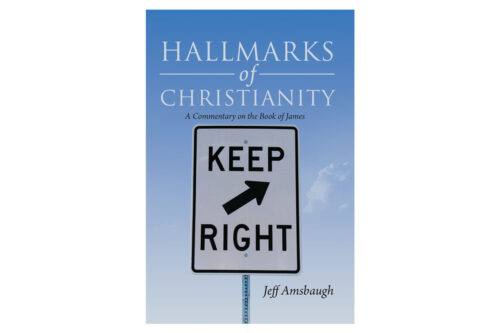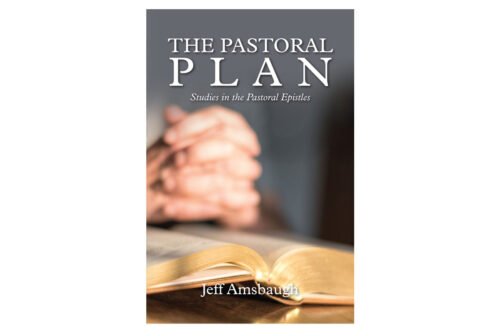-
Isaiah ends his great prophecy by telling us about a new heaven and new earth. He does not leave us in the dark, however, about how this new universe will come to be. The entire focus of the book is on the Messiah, Jesus Christ. The prophet tells us of Christ’s birth, Christ’s cross, and Christ’s return. Jesus is the Servant of the Lord who accomplishes the very salvation of God. Indeed, He is God’s salvation. And it is no halfway salvation. It is salvation that helps us in this life and in the life to come. Those who embrace Christ are saved to the uttermost. We trust that you will arrive at a greater appreciation of this great salvation through this study of Isaiah
-
Life is filled with dreams. Someone has once said that we will never accomplish more than we are willing to dream. There is no denying that Daniel was a dreamer and was interested in helping fulfill the dreams of others. This commentary takes you through the historical and prophetic sections of Daniel, a significant Old Testament work. It is our hope that as a result of this study you will not be afraid to dream the impossible and trust God for the unforeseeable. No true student of eschatology can rightly understand the future without a working knowledge of the book of Daniel. It is our prayer that this commentary will aid your prophetic understanding of God’s Word.
-
If you have been saved for any length of time, you have probably seen some rift over Calvinism. Perhaps you feel uncomfortable believing that your lost relatives are unsaved because somehow God has not chosen them to salvation. That all having been said, however, you are not quite sure how this fits with the election passages of the Bible. In The Great Rift, Jeff Amsbaugh explores the roots of Calvinism and attempts to explain the five points of Calvin in light of God’s Word in order to help you the next time a rift over Calvinism comes your way.
-
The modern-day church is becoming increasingly weak in its doctrine. Teaching doctrine is not favorable and practicing doctrine is not popular. In fact, many churches have decided to abandon doctrine altogether because of its divisive nature. Today’s Christian must be properly equipped with Biblical doctrine to combat the heresies that dominate modern thought. Every Christian must know what they believe about core truths and why they believe them. This commentary trains you to be a heresy hunter. You will learn how to recognize the subtle differences in false teaching and how to avoid being trapped in unscriptural error.
-
We often think that trials are inappropriate for the Christian, and therefore we respond with bitterness and retaliation when they come. The Bible is clear, however, that trials are not foreign to the Christian life but a necessary component of it. Therefore, trials should not only be embraced but enlisted to serve God more effectively. This commentary explores the book of I Peter and develops concepts to help you submit the next time your Christian life is under fire.
-
When a person accepts Jesus Christ as his personal Saviour, he is immediately justified in the eyes of God. But how is a person justified in the eyes of men? This commentary takes you through the book of James and explains the defining hallmarks of Christianity. Here you will find practical tips on how to stay right in a world that is constantly drifting left.
-
We live in a world that invites comparisons. We compare restaurants, cars, and even churches. Some seminaries even offer courses in comparative religions. One famous apologist said that “all religions are essentially the same. They just differ over minor issues such as sin, salvation, heaven, and hell.” The author of the book of Hebrews goes to great lengths to prove that Jesus is better than anything religion can offer. Join us in this study of Hebrews to find out why Jesus is “better by far.”
-
At times, we all feel like running away. Unfortunately, when we run away from our problems, we often create more. Thankfully, God positions Himself so that when we run from Him, we often run into Him. Such was the case with Onesimus. While on the run, he ran into God, and his life was forever changed. Discover how his master, Philemon, took him back and in so doing mirrors Christ who takes us back when we run away from Him.
-
All too often, pastoral candidates are merely asked to preach a couple of sermons to a local assembly before the vote is taken to call them to lead a church. Indeed, we often refer to our pastors as “preachers.” But is there more to pastoral leadership than pulpit communication? What does God require of the man who would shepherd the flock? This commentary explores the books of I Timothy, II Timothy, and Titus to discover God’s plan for pastoral ministry.
-
In previous ages, Christians lived in great anticipation of the Lord’s return. A belief in the imminent rapture of the church led many Christians to embrace holy living and aggressive evangelism. Times, however, have changed. Now, anyone who speaks of the Lord’s return is viewed as being on the same level as someone who claims to have seen Elvis in Burger King. Prophecy is seldom preached, and when it is, the preacher is viewed as a kook. The New Testament in general, and the books of I and II Thessalonians in particular, repeatedly emphasize, however, the fact that the King is coming. Our hope is that the pages of this commentary will help you live in light of that day.
-
The hallmark of orthodox Christianity is justification by faith. The thing that separates Christianity from every other religion is the fact that men are counted righteous before God by faith in the work of Christ independent of human merit. After we are saved, however, we sometimes feel that we must work for the smile of God. We believe that we are justified by faith but sanctified by works. Paul uses no other word but “foolish” to describe this mentality. In this commentary, you will learn that growth in the Christian life is accomplished by the same means as entrance into the Christian life - by grace through faith.
-
The children of Israel had returned from Babylonian captivity and were eagerly anticipating great things from the Lord. They had returned to their homeland and had rebuilt their temple. Fifty years later, however, expectations were very low. Joshua and Zerubbabel had both died. The glory of the Lord had not filled the temple as Ezekiel said it would. And the day of miracles had passed with Elijah and Elisha. This was an apathetic age, an uneventful waiting period. Malachi writes to his fellow Jews to give them cures for apathy. This commentary explores those cures and presents them as hope for our current apathetic age.












